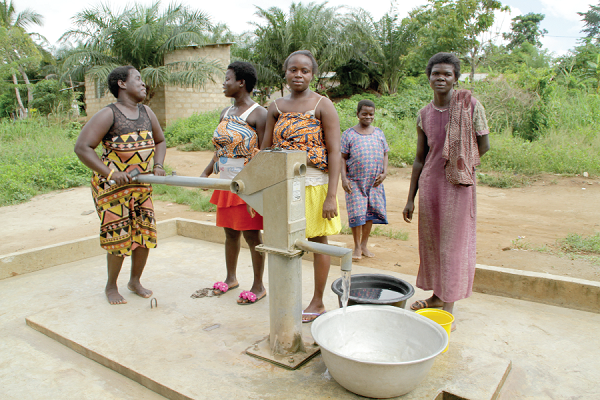
Providing water, sanitation for all will boost economy — WaterAid
A new report from international aid agency, WaterAid, says developing countries’ economies will be boosted by trillions of dollars over the next two decades, if clean water, toilets and hygiene are brought to everyone.
According to the agency, ensuring all citizens have access to basic water, hygiene and toilets will bring returns of up to 21 times their cost.
Advertisement
Findings by Vivid Economics, a strategic economics consultancy with headquarters in London which conducted the research and analysis that fed into the report, said investment in water, sanitation and hygiene (WASH) for a healthy and green economic recovery, showed that reaching the levels of access defined by the UN’s Sustainable Development Goals could unlock huge sums.
The benefits
It said: “Ensuring everyone has a toilet where waste is safely managed can yield US$86 billion per year in greater productivity and reduced health costs among other benefits.”
It added that by ensuring everyone has somewhere to wash their hands with soap and water can yield $US45 billion per year.
The report further stated that ensuring everyone has a tap at home can yield $37 billion per year.
The report also mentioned that “protecting water and sanitation infrastructure from worsening flooding is one of the best ways we can protect the world’s most vulnerable people from the impacts of climate change — for every US dollar spent on strategic flood resilience upgrades, US$62 in flood restoration costs can be avoided, as well as preventing life-threatening contamination of drinking water sources.”
It said the provision of a community water pump or well can give women and girls the equivalent of 77 million working days per year, while upgrading to a tap in every house would free-up 122 million working days that were annually stolen from them.
“Achieving the UN targets on sanitation could prevent up to six billion cases of diarrhoea and 12 billion cases of parasitic worms between 2021 and 2040. Diarrhoea kills more than 70,000 children each year, and hookworm — just one type of parasitic worms — affects 500 million people each year, meaning that every year four million years are lost to people through ill-health or shortened lives,” according to the report.
COVID-19 impact
The WaterAid report comes just days before G20 finance ministers meet, as many developing countries struggle to contain devastating waves of COVID-19 that risk overwhelming already-fragile health services and with weak economies already severely hit by lockdowns and travel restrictions.
It calls on governments, donors and businesses to make WASH investments central to fiscal stimulus packages in developing countries in order to strengthen economic recovery and support future pandemic preparedness.
The Chief Executive of WaterAid, Mr Tim Wainwright, said: “Investment in water, sanitation and hygiene is mission-critical not only to ending this pandemic and preventing the next but to bouncing back economically by unlocking trillions of dollars of value for the global economy.
“Water and sanitation have been sidelined for far too long, their value overlooked, trapping millions in poverty. Our research shows that it’s an extremely cost-effective investment. Ensuring everyone everywhere has access to even basic water, hygiene and toilets will bring returns of up to 21 times the cost,” he said.
Call on governments
“There can be no going back to the pre-pandemic business-as-usual. WaterAid is calling on governments, donors and businesses to do the right thing and prioritise the most vulnerable communities by making water, sanitation and hygiene investments central to their COVID-19 response, pandemic-preparedness and green recovery plans,” Mr Wainwright said.
The report includes a global and regional analysis of the benefits and costs of investing in WASH. Also included are case studies from Burie, Ethiopia, and Shyamnagar, Bangladesh which show the positive health, economic and environmental benefits of WASH programmes at the local level. They have strengthened the resilience of marginalised communities to the impacts of climate change, with particular benefits for women and girls.
A Senior Economist at Vivid Economics, Caroline Vexler, who led the analysis that fed into the report, said: “Our global benefit-cost analysis demonstrates that investing in WASH is a triple win: it can unlock billions in economic opportunities and health savings at relatively low cost, it can address key objectives of stimulus spending post-COVID and can build resilience to increasing global risks.” #GraphicCleanGH



